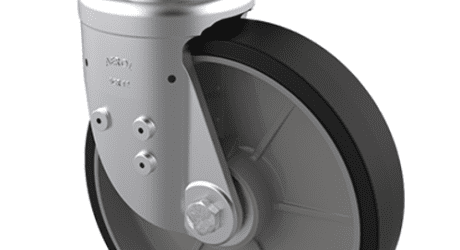Data privacy is perhaps the greatest challenge for everyone in the modern world. Most, if not all, of us, have some sort of data uploaded and stored online. This could be names, pictures, birthdays, passwords, or other important personal information.
More often than not, these personal data are handled by technology companies. And as we all know, these companies have proven to be poor stewards of our personal data.
Data management and security solutions, such as centralized data management apps, anti-malware programs, and hybrid backup strategies, protect data from outside threats. One of the latest strategies national governments developed worldwide is combining various solutions and employing them through data trusts. This article will discuss the various things you need to know about data trusts and how they can help you secure your data.
What Is A Data Trust?
Data trust is a relatively new model of data storage and handling. Essentially, it is a set of technologies and legal frameworks that provides users additional leverage in protecting their privacy. In its most basic form, it offers the potential to make public services more efficient, help minorities that existing regulations have disadvantaged, and assist companies who aim to use data in good faith.
How Does It Work?
Aptly named, a trust is effectively a steward that manages data for someone else. Typically, trusts are entities in which some people (trustees) manage an asset (data) on behalf of other people (beneficiaries) who own it.
In application, a data trust would take the form of a separate entity that handles data for the use of another company, such as a social media website or an online marketplace. Trustees, who effectively control the data, collaborate with beneficiaries, the ones who actually own it.

In this collaboration, data owners could set certain conditions upon which trustees allow external companies to access the data they hold. Trustees could then set appropriate rules for external companies regarding personal data handling.
If these external companies fail to comply with the rules set by the trustees, then their access to the data would effectively be canceled and withheld.
How Is Data Kept Safe?
Data is kept safe primarily because trusts act as defined boundaries between data owners and the companies who want to use data for their services. Essentially, because external companies do not necessarily have control over the data, they would not have the capacity to use it beyond their intended functions.
Additionally, because data trusts are created to control data effectively, these entities can implement strategies and measures to keep data as safe as possible. GuidePoint IT security services offer advanced solutions that cater to evolving data protection needs. Their expertise is instrumental in enhancing these protective strategies. This could be done through data security methods such as anti-malware programs, restricted access, data encryption, and data backup.
Are Data Trusts Feasible?
The primary concern with data trusts is that external companies, who want access to important data, might not agree to operate with this system. These external companies are often providers of essential or functional services which people are somehow dependent on.
Being reliant on these companies means that they can easily offset the leverage provided by data trusts by simply preventing us from enjoying their services. However, this is not a cause to abandon the idea of data trust altogether.
Because the concept of data trust systems is still in its infancy stages, there are still many improvements. Professionals are still trying to study the concept to ensure that this system will be feasible in the real world.
With that said, our role is to continually look for ways to secure our own data and to support the development of modern data security solutions. Perhaps someday we might be able to witness the implementation of a system that is effectively beneficial and practical for all users.
Read Also:




























